Ann Vickers

Brief Synopsis
Cast & Crew
John Cromwell
Irene Dunne
Walter Huston
Conrad Nagel
Bruce Cabot
Edna May Oliver
Film Details
Technical Specs

Synopsis
After she is seduced and then abandoned by the handsome but fickle World War I army officer Captain Resnick, Ann Vickers, an ambitious, devoted social worker, travels to Havana with her friend, Dr. Malvina Wormser, to have her illegitimate baby in secret. When the baby dies, however, Ann, deeply embittered by her romantic experiences, rejects the marriage proposal of longtime companion Lindsey Atwell and rededicates herself to her career, landing a job as a sociologist at a women's prison. Soon horrified by what she observes there, Ann protests conditions to the prison authorities. Instead of correcting matters, Ann's superiors frame her in a phony "sex" setup and threatened her with blackmail. Forced out of the job, Ann retaliates by writing a best-selling book about the terrors of prison life, which, with the help of influential Judge Barney Dolphin, earns her a post as head of another women's reformatory. Although the job challenges and enriches her, Ann still longs for romance and children, and upon at last meeting the successful but unhappily married Barney, she falls in love. Their romance blossoms and Ann becomes pregnant again, but as Barney is unable to secure a divorce, she must bear their son Matthew still unwed. At the same time, Barney is indicted and found guilty of accepting bribes and is sentenced to six years of hard labor. Because of Matthew's illegitimacy, Ann is made to resign her position at the reformatory but is content just to write free-lance articles to support Matthew and wait for Barney's release. To her joy, Barney receives a pardon after three years and, now divorced, returns home to marry Ann, who tells him that she is cured of her ambition and is happy to be a simple homemaker.

Director

John Cromwell
Cast
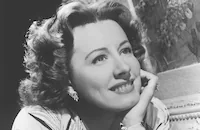
Irene Dunne

Walter Huston
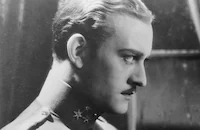
Conrad Nagel
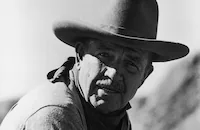
Bruce Cabot

Edna May Oliver

Sam Hardy
Mitchell Lewis
Murray Kinnell
Helen Eby-rock
Gertrude Michael

J. Carroll Naish
Sarah Padden
Reginald Barlow

Rafaella Ottiano
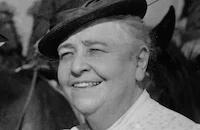
Jane Darwell
Fay Holderness
Jessie Heatman
Marjorie Tucker
Lillian Harmer
Mary Foy
Katherine Block
Dan Jones
Bill Cody
Red Kirby
Walter James
Willie Keeler
June Mathews
Estelle Brody
Jenny Dark
Violet Knight
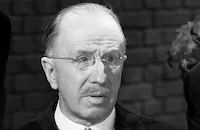
Arthur Hoyt
Margaret Armstrong

Irving Bacon
John Kelly
Helen Cromwell
Reginald Pasch
Wally Albright
Edwin Maxwell
Clarence Geldert
William Moran
L. J. O'connor
James Casey
John Larkin
Mona Dolphin
Jack Gargan
Robert Doran
Fred Walsh

Larry Williams
May Beatty
Crew
David Abel
James Almond
Tommy Atkins
Pandro S. Berman
Joe Biroc
Lucille Caron
Merian C. Cooper
Edward Cronjager
James Daly
E. J. Harman
Kenneth Holmes
Charles Kirk
Kenny Koontz
Gaston Longet
Mary Miner
William Morgan
Jane Murfin
George Nicholls Jr.
Van Nest Polglase
Clem Portman
Sam Redding
Tommy Scott
Max Steiner
James G. Stewart
Vernon Walker
Paul Wiser

Videos
Movie Clip




Film Details
Technical Specs

Articles
Ann Vickers
Budgeted at a cost of $317,476, Ann Vickers was a remarkably frank film for 1933, one that featured two out-of-wedlock pregnancies and a remarkably independent, almost feminist heroine by today's standards. The film was adapted from a novel by the socially progressive writer Sinclair Lewis (Babbitt, Elmer Gantry), the first American to be awarded the Nobel Prize in Literature. Lewis was known for his anti-capitalist messages, strong working woman characters and treatment of race in his work.
Joseph Breen, public relations director of the Hays office, was in charge of evaluating the initial script and found much of the material objectionable. In the screenplay's first draft Ann marries Captain Resnick, has a child with him but after the two separate, has an affair with Barney Dolphin while both are still married, a union that also produces a child. That romantic triangle was too much for the Hays office to stomach. Breen cited the portion of the Production Code prohibiting themes "tending to destroy the sanctity of marriage." After weeks of meetings with the Hays office, producer Merian C. Cooper eventually changed the script so that two married people, Ann and Dolphin, would not both be participating in adultery. References to the abortion Ann seeks in Havana were also eliminated. RKO considered re-releasing the film in 1937 but was told its still salacious themes would mean no production code certificate would be issued because of the adultery themes.
Producer: Pandro S. Berman, Merian C. Cooper
Director: John Cromwell
Screenplay: Jane Murfin, Sinclair Lewis (novel)
Cinematography: David Abel, Edward Cronjager
Film Editing: George Nichols, Jr.
Art Direction: Charles Kirk, Van Nest Polglase
Music: Roy Webb
Cast: Irene Dunne (Ann Vickers), Walter Huston (Barney Dolphin), Conrad Nagel (Lindsay Atwell), Bruce Cabot (Captain Lafe Resnick), Edna May Oliver (Malvina Wormser), Sam Hardy (Russell Spaulding).
BW-76m.
by Felicia Feaster

Ann Vickers
Quotes
Trivia
Notes
Because of numerous, repeated objections made by the Hays Office, the film's screenplay underwent many fundamental changes during its creation, as documented by files in the MPAA/PCA Collection at the AMPAS Library. In early drafts of the script, the character of Ann marries Captain Resnick, bears his child and separates from him. While still legally married to Resnick, she then has an affair with married Barney Dolphin and becomes pregnant by him, but asks Resnick to return to her so that her second child will be legitimate. In a letter dated May 5, 1933, Joseph I. Breen, Public Relations Director of the Hays Office, objected strenuously to the fact that Ann "co-habits with two men...and has a child by each of them, but maintains this illicit relation with one of the characters, who is married, while she, herself, is the wife of another man." This plot point, Breen argued, fit "in well with Mr. [Will] Hays' characterization of the plot of another picture recently produced-'progressive prostitution.' Breen also stated that the story was "definitely in violation of that portion of our Code which prohibits themes 'tending to destroy the sanctity of marriage.'" Although producer Merian C. Cooper resisted acting on these complaints, he and the studio finally agreed to make certain changes after weeks of meetings with the Hays Office. The most significant change involved eliminating Ann's first marriage and having her instead be the object of seduction. According to Dr. James Wingate, Director of Studio Relations of the AMPP, this change was initiated because "where both parties to any adultery are married, the offense is more serious than if only one of the adulterers is married." In addition, the Hays Office expressed concern that no reference to abortion be included in the film. Although the studio gave in to some of the Hays Office recommendations, RKO executive B. B. Kahane said no to the suggestion that adultery be denounced by Ann in the dialogue. As the scenes play in the final film, the purpose of Ann's trip to Havana, to have her baby or an abortion, is ambiguous. Reviewers conclude that Ann "lost" her baby in childbirth, although one critic adds that the death as presented is "mysterious." In late 1935 and in early 1937, RKO contemplated re-releasing Ann Vickers but was informed by the PCA that no production code certificate would be issued because of the film's attitudes toward adultery.
RKO borrowed Walter Huston from M-G-M for this production. A May 1935 Hollywood Reporter news item stated that Ann Harding was to play opposite Walter Huston in the picture. Hollywood Reporter news items add Kitty Kelly and Robert Benchley to the cast, but their participation in the final film is doubtful. Although Ferdinand Gottschalk is listed in studio production files as playing "Dr. Slenk," Murray Kinnell is credited onscreen in the role. It is not known if he Gottschalk played another role in the final film. Studio production files indicate that Sarah Padden played her role in black face. The total budget of the film, as reported in production files, was $317,476. According to modern sources, additional cast members include Geneva Mitchell (Leah Burbaum), Frederic Santley (Sam, reform assistant) and Larry Steers (Prosecutor).














